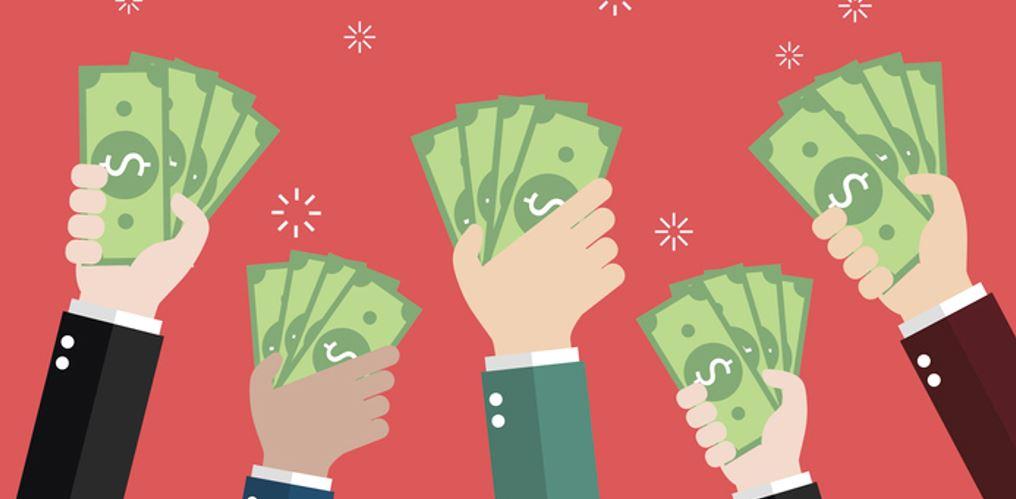
According to John Maynard Keynes:
The ideas of economists and political philosophers, both when they are right and when they are wrong, are more powerful than is commonly understood. Indeed, the world is ruled by little else. Practical men, who believe themselves to be quite exempt from any intellectual influence, are usually the slaves of some defunct economist. Madmen in authority, who hear voices in the air, are distilling their frenzy from some academic scribbler of a few years back. I am sure that the power of vested interests is vastly exaggerated compared with the gradual encroachment of ideas. Not, indeed, immediately, but after a certain interval; for in the field of economic and political philosophy there are not many who are influenced by new theories after they are twenty-five or thirty years of age, so that the ideas which civil servants and politicians and even agitators apply to current events are not likely to be the newest. But, soon or late, it is ideas, not vested interests, which are dangerous for good or evil.
Whenever there are signs that the economy is likely to fall into an economic slump, most economic experts claim the central bank and the government must embark on loose monetary and fiscal policies to counter the possible recession. In this sense, most experts are following the ideas of John Maynard Keynes.
Keynes held that one could not have complete trust in a market economy, which is inherently unstable, and if left on its own, the market economy would self-destruct. Hence, governments and central banks must manage the economy.
Successful management in the Keynesian framework is done by influencing the overall spending in an economy, since spending generates income. Spending by one individual becomes income for another individual, so the more that is spent, the better it is going to be.
Consumption and Production
In the Keynesian framework, consumer outlays are the greatest part of spending. Hence, they are regarded as the motor of the economy, as consumption sets economic growth into motion.
One must make a distinction between productive and nonproductive consumption, however. While productive consumption is an agent of economic growth, nonproductive consumption leads to economic impoverishment.
For example, a baker exchanges ten loaves of bread for ten potatoes. The potatoes sustain the baker while he is engaged in the baking of bread. Likewise, the bread sustains the potato farmer whilst he is engaged in the production of potatoes. What we have here that the respective production of the baker and of the potato farmer enables them to secure goods for consumption.
What makes the consumption productive here is the fact that both the baker and the potato farmer consume in order to be able to produce consumer goods. The consumption of both the baker and the potato farmer maintains their lives and well-being.
The introduction of money does not change what was said so far. Thus, the baker can exchange his ten loaves of bread for ten dollars—he then uses money to secure ten potatoes. Likewise, the potato farmer can now exchange his ten dollars for ten loaves of bread.
While fulfilling the role of the medium of exchange money has contributed absolutely nothing to the production itself of bread and potatoes. To obtain potatoes, the baker had to exchange bread for money and then used money to secure potatoes. Something was exchanged for money, which in turn was exchanged for something else or something for something is exchanged with the help of money.
Trouble erupts when money is created out of “thin air.” Such money gives rise to consumption, which is not backed by production. It leads to an exchange of “nothing” for “something.” For instance, a counterfeiter prints twenty dollars. Since he did not secure this money through the production of goods, the counterfeiter, therefore, has obtained the twenty dollars by exchanging nothing for it. The counterfeiter uses the newly generated money to buy ten loaves of bread, which actually diverts real wealth—ten loaves of bread—from a potato farmer towards the counterfeiter.
Note that the diversion takes place by the counterfeiter paying a higher price for bread—he pays two dollars per loaf. (Previously the price stood at one dollar per loaf). Also, note that since the counterfeiter does not produce anything useful, he is engaged in nonproductive consumption and has obtained his consumption goods via wealth transfers from productive people.
The potato farmer is now denied the bread that he must have to sustain him while he produces potatoes. Obviously, this will impair the production of potatoes, as fewer potatoes will become available, which in turn undermines the baker’s consumption. This, in turn, impairs his ability to produce. We can thus see that while productive consumption sustains wealth generators and promotes the expansion of wealth, nonproductive consumption leads to economic impoverishment.
Printing money by the central bank produces the same damaging effects as does counterfeit money, and the creation of money through fractional reserve banking produces the same damaging effect. The expansion of money sets the platform for nonproductive consumption, which is an agent of economic destruction.
According to Ludwig von Mises:
There is need to emphasize the truism that the government can spend or invest only what it takes away from its citizens and that its additional spending and investment curtails the citizens’ spending and investment to the full extent of its quantity.
From this, we can conclude that since government does not generate wealth, it cannot produce economic growth. Contrary to popular belief, the more the government spends the worse it is for the health of the economy and for economic growth.
Is a Demand Increase Key to Economic Growth?
We suggest that an individuals’ demand is constrained by his ability to produce goods on the free market. The more goods that an individual can produce, the more goods he can demand—i.e., acquire.
If a population of five individuals produces ten potatoes and five tomatoes, this is all that they can demand and consume. No government and central bank tricks can make it possible to increase their effective demand. The only way to raise the ability to consume more is to raise the ability to produce more.
The dependence of demand on the production of goods cannot be removed by means of monetary pumping and government spending. On the contrary, loose fiscal and monetary policies will likely impoverish wealth generators and weaken their ability to produce goods and services, thus weakening effective demand. Therefore, producers and not consumers are the engine of economic growth.
On this James Mill held:
When goods are carried to market what is wanted is somebody to buy. But to buy, one must have the wherewithal to pay. It is obviously therefore the collective means of payment which exist in the whole nation constitute the entire market of the nation. But wherein consist the collective means of payment of the whole nation? Do they not consist in its annual produce, in the annual revenue of the general mass of inhabitants? But if a nation’s power of purchasing is exactly measured by its annual produce, as it undoubtedly is; the more you increase the annual produce, the more by that very act you extend the national market, the power of purchasing and the actual purchases of the nation…. Thus, it appears that the demand of a nation is always equal to the produce of a nation. This indeed must be so; for what is the demand of a nation? The demand of a nation is exactly its power of purchasing. But what is its power of purchasing? The extent undoubtedly of its annual produce. The extent of its demand therefore and the extent of its supply are always exactly commensurate.
Therefore, what is then required to revive the economy is not boosting aggregate demand but sealing off all the loopholes for the creation of money out of “thin air” and curbing government spending. This will enable true wealth generators to revive the economy by allowing them to move ahead with the business of wealth generation.
Conclusions
By popular thinking, increases in government spending and central bank monetary pumping strengthens the economy’s overall demand. This, in turn, supposedly increases the production of goods and services—i.e., increases the overall supply, which would mean that “demand creates supply.” This further means that the importance of demand is not in directing suppliers as to what goods and services to produce, but rather that demand itself is the agent of production, promoting the false idea that we can obtain something from nothing.
In order to demand goods and services, individuals must produce something useful first. Hence, supply drives and enables demand and not the other way around. Economists that advocate for strong government stimulus measures during an economic slump never bother to ask how those measures will be supported. At best, they only can argue that by borrowing money to boost present consumption will be paid for by the future goods and services that the stimulus will provide and would not have been produced at all without the stimulus. At best, this is a dubious proposition.







